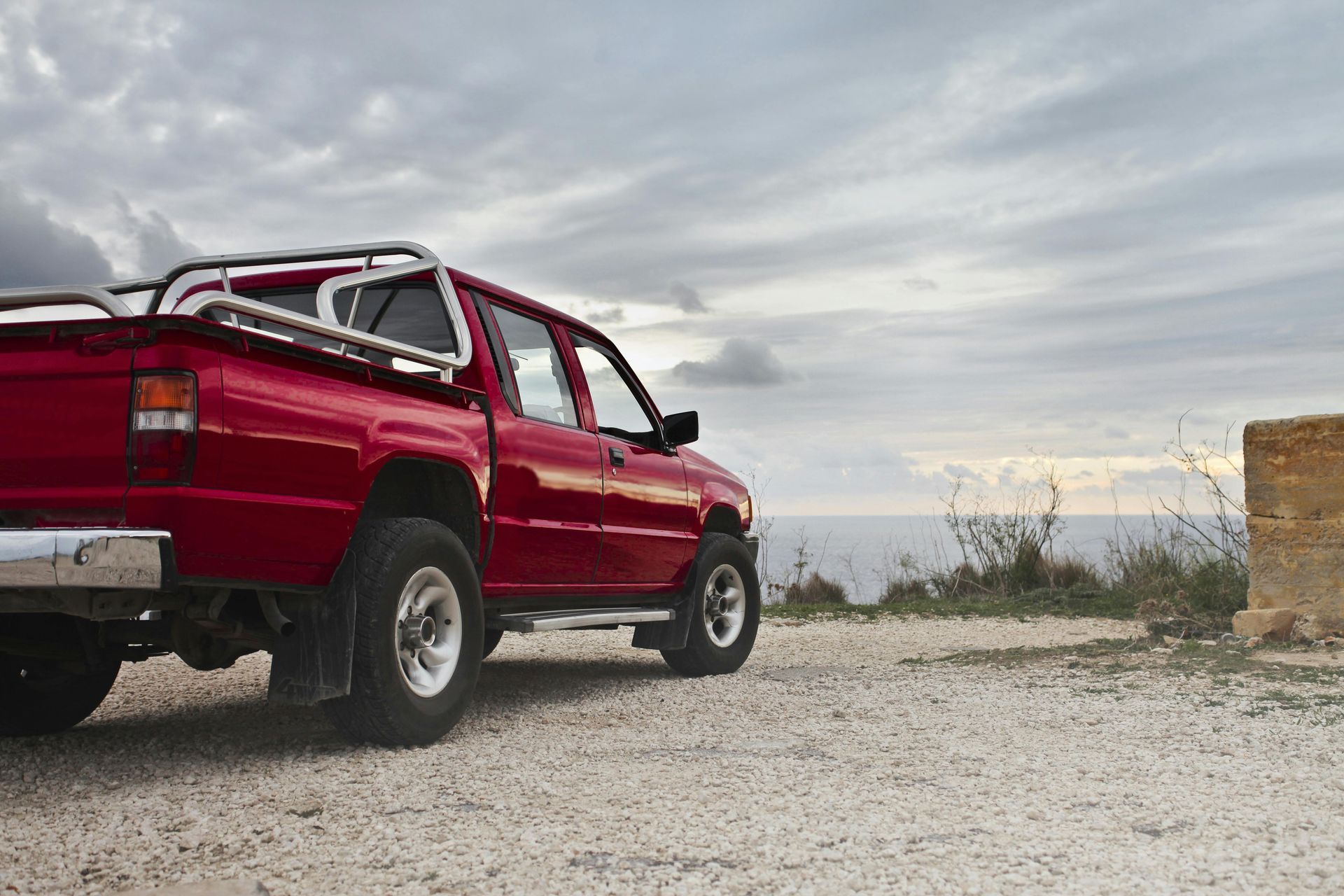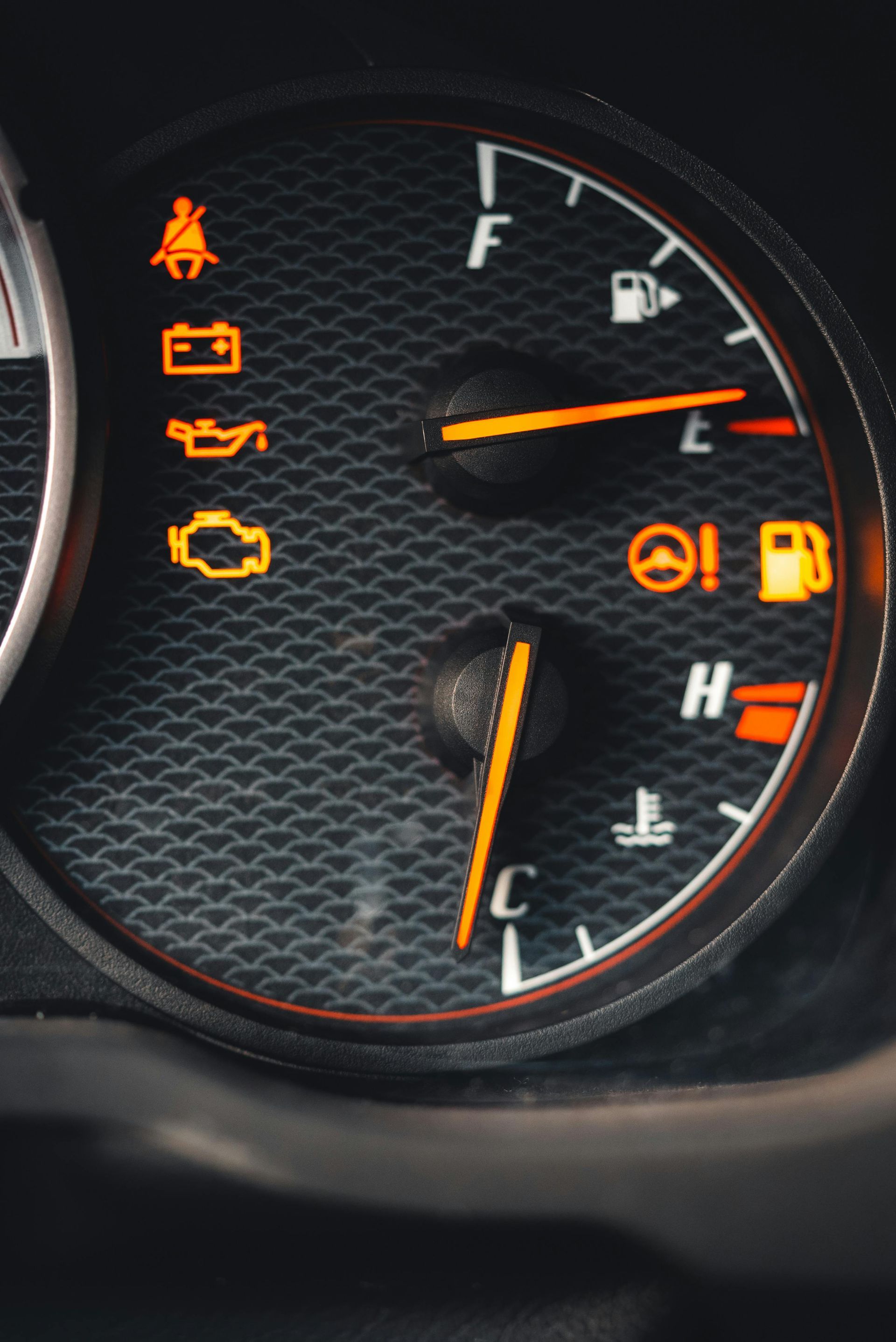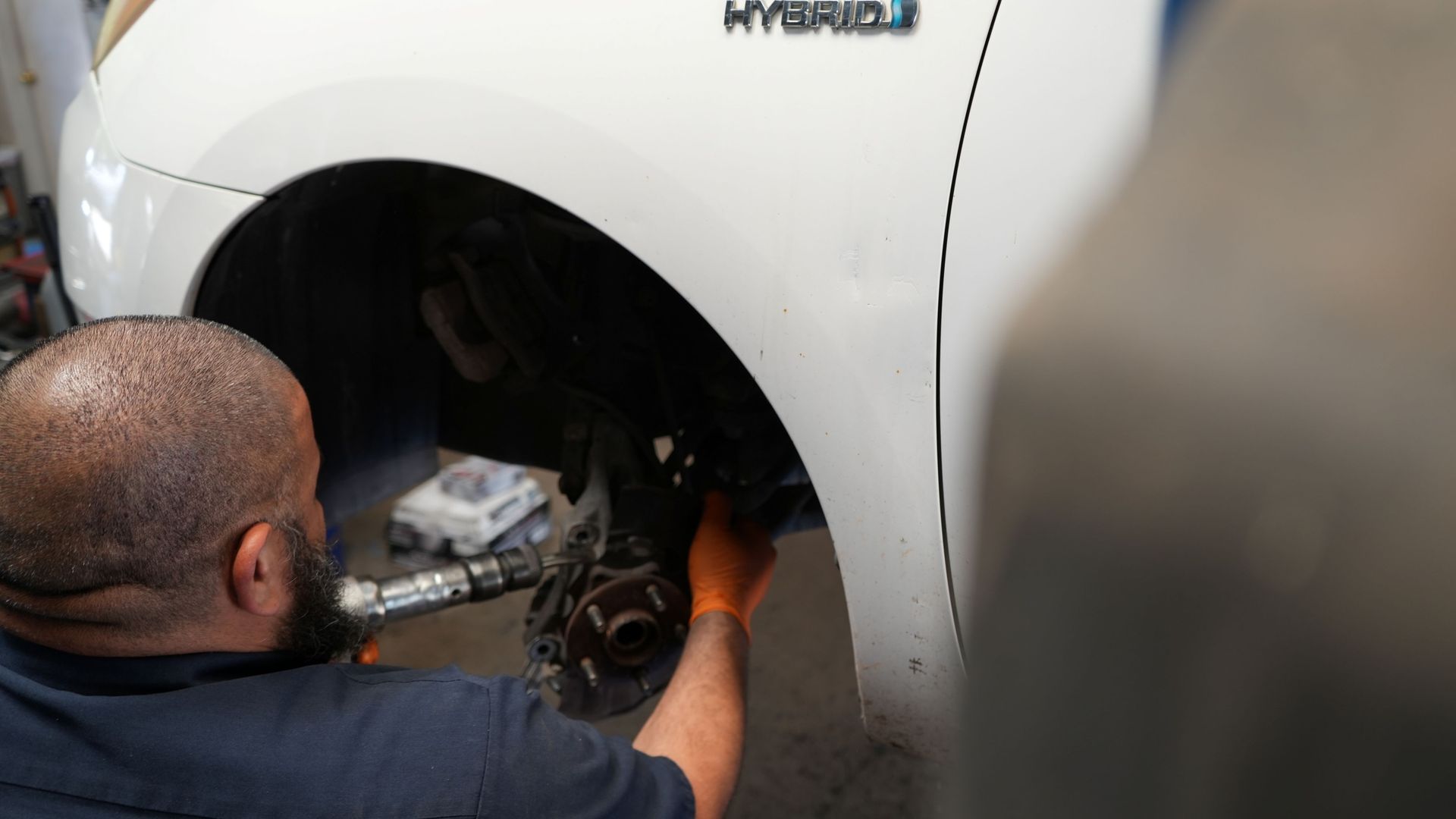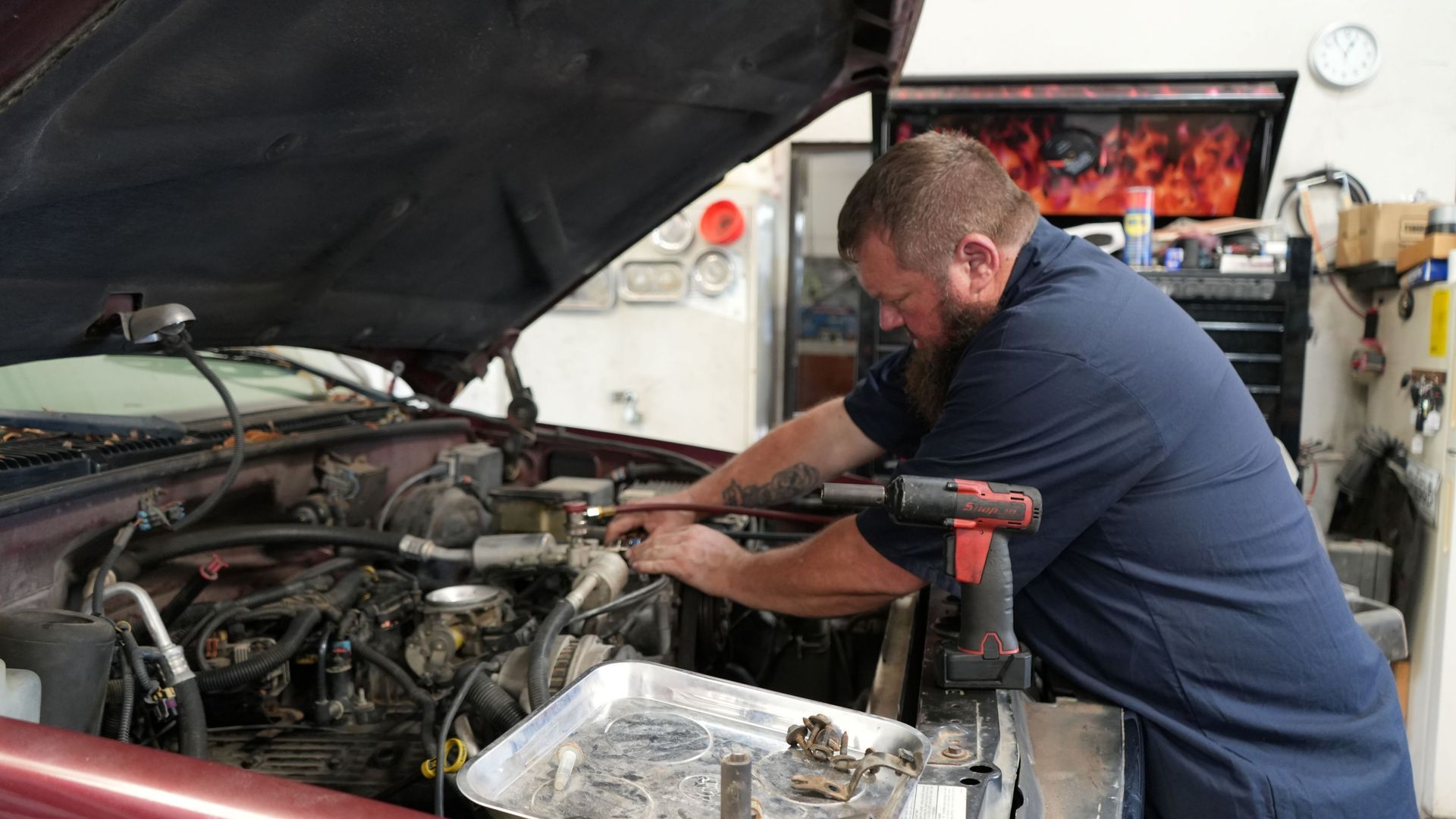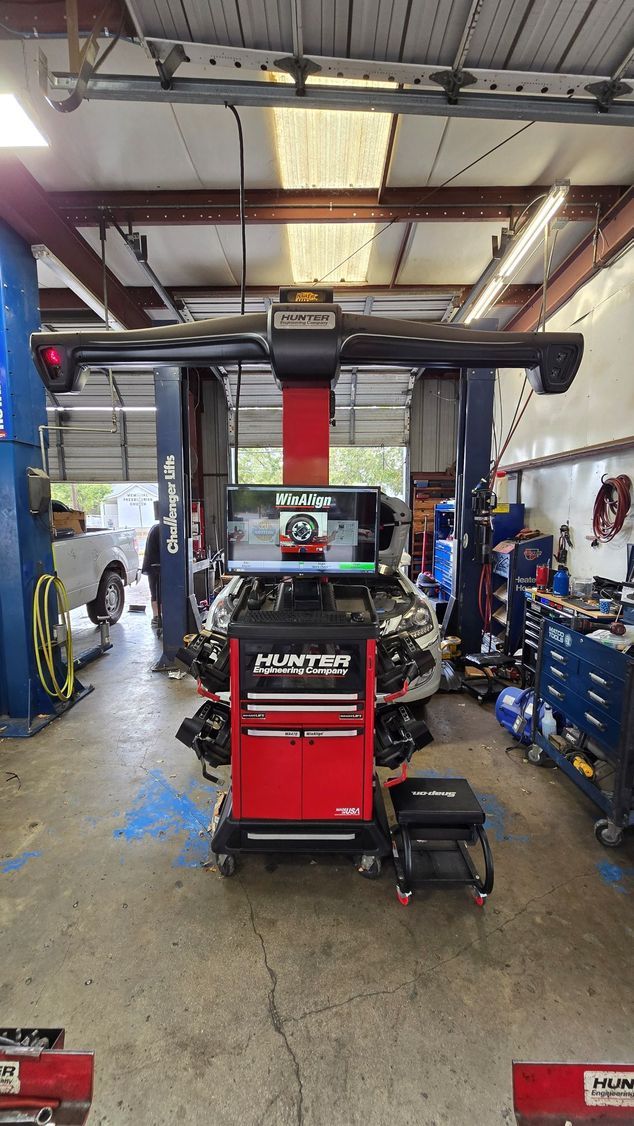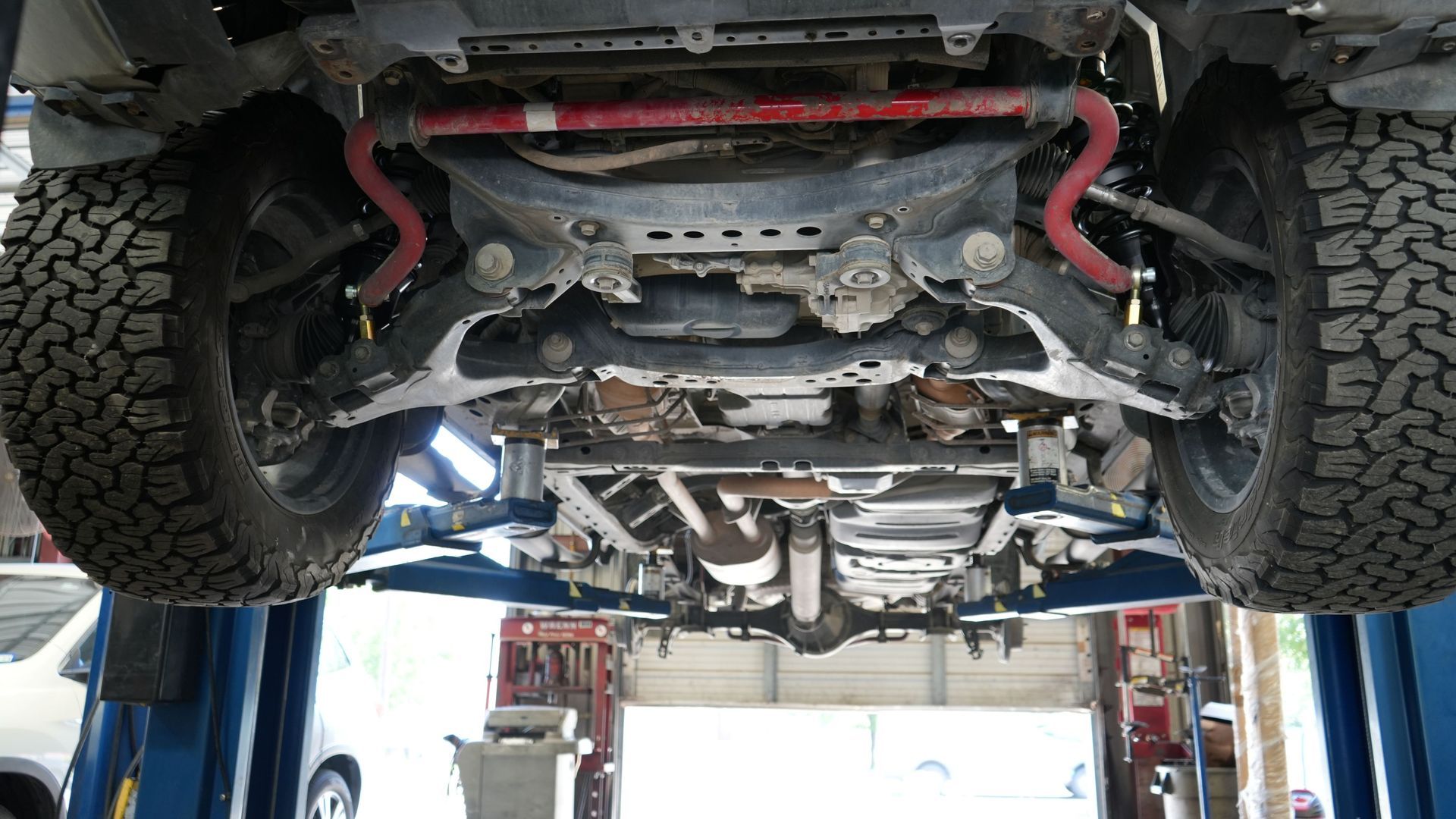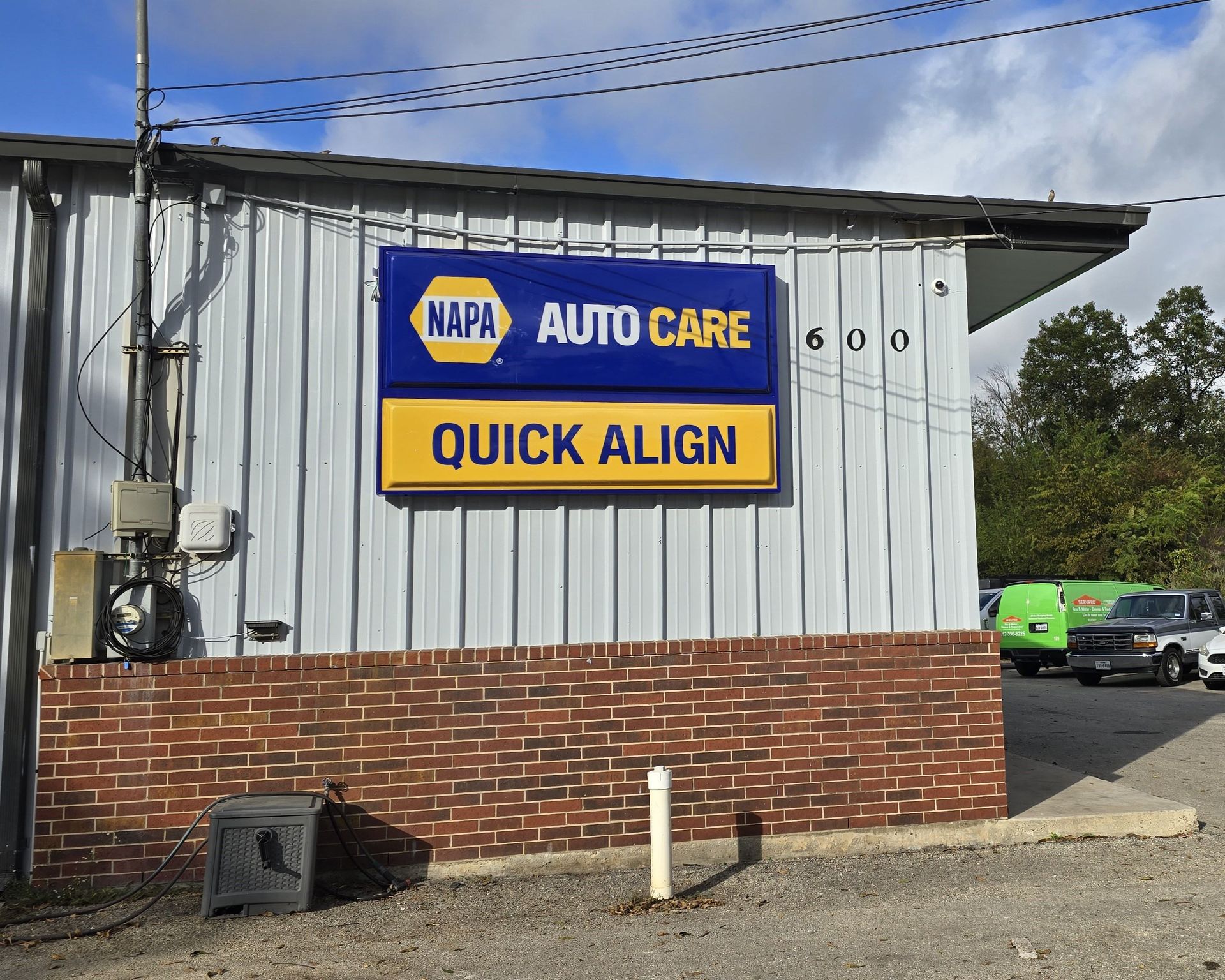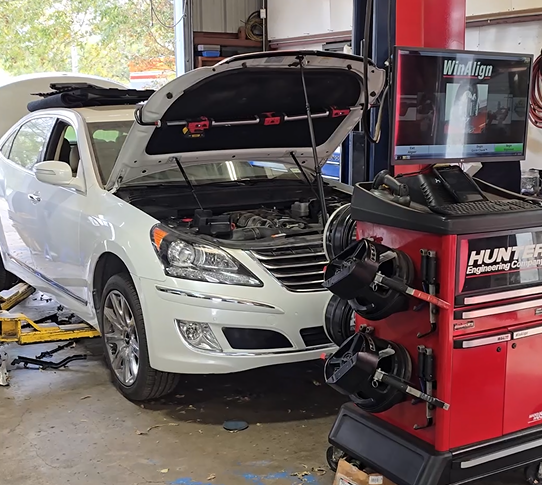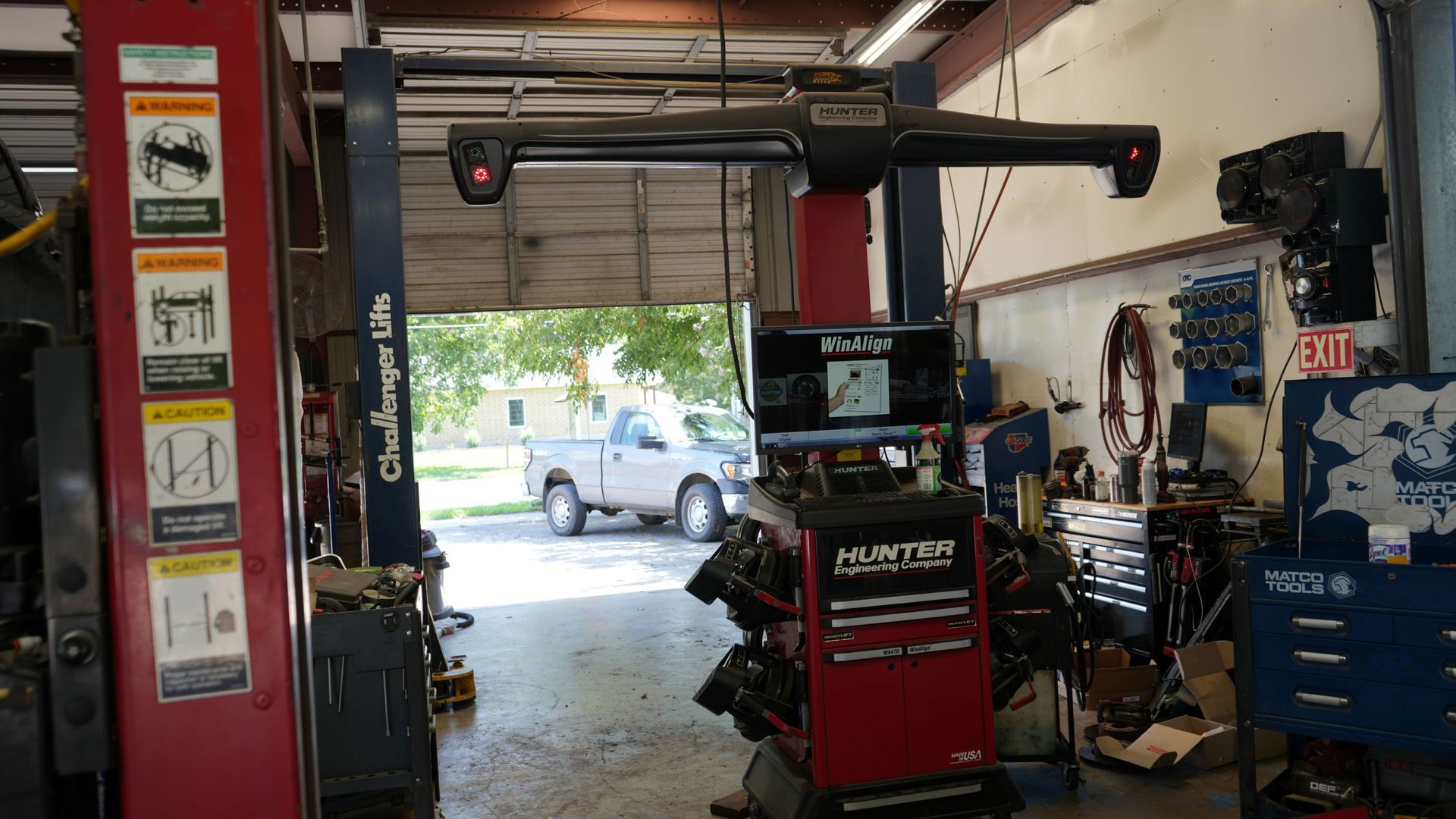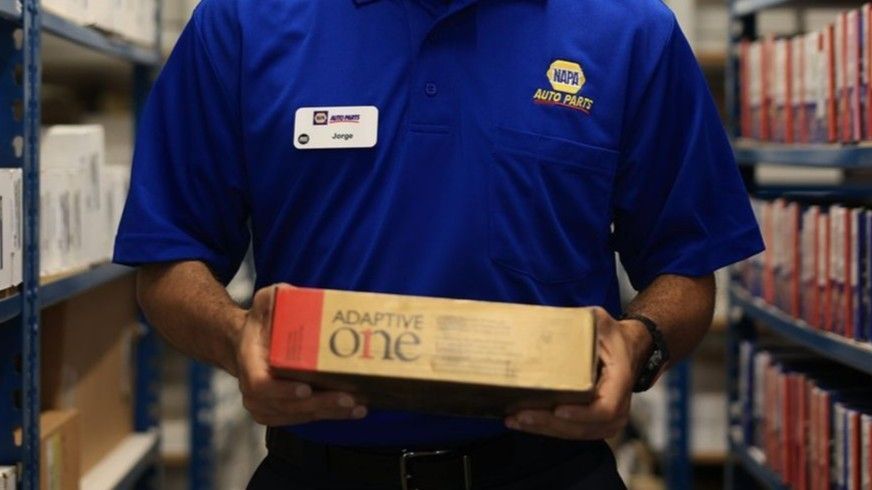Disc Brakes vs. Drum Brakes: Which Do You Have?
Most drivers don’t give much thought to their brakes until they start squealing or failing to stop the way they should. But knowing the type of brakes your vehicle has—disc or drum—can help you better understand how they work, how they wear, and why regular maintenance is so important. While both systems do the same job (slowing and stopping your car), they go about it in different ways, and each has its own strengths.
The Basics: How Brakes Work
At their core, brakes are all about friction. When you press the brake pedal, hydraulic fluid pushes brake components against a spinning surface attached to your wheels. That friction slows the wheel, and eventually, your car. Disc and drum brakes simply use different designs to make that happen.
Disc Brakes
Disc brakes are the most common setup on modern vehicles, especially on the front wheels. Here’s how they work:
- A rotor (or disc) spins with the wheel.
- A caliper squeezes brake pads against both sides of the rotor.
- The friction slows the rotor, and therefore the wheel.
Benefits of Disc Brakes
- Better stopping power: Because the pads clamp both sides of the rotor, disc brakes provide strong, reliable braking—especially important at high speeds.
- Better heat dissipation: Discs are exposed to air, so they cool faster and resist brake fade (loss of braking effectiveness when overheated).
- More responsive: They tend to react quickly, giving you better pedal feel and control.
- Lower maintenance: Pads are relatively easy to inspect and replace.
This is why most vehicles today use disc brakes on at least the front wheels—and many use them all around.
Drum Brakes
Drum brakes are an older design, but they’re still in use, especially on rear wheels of smaller cars, trucks, and economy models. Here’s the setup:
- A drum spins with the wheel.
- Brake shoes inside the drum press outward against the inner surface.
- Friction between the shoes and drum slows the wheel.
Benefits of Drum Brakes
- Cost-effective: They’re less expensive to manufacture, which helps keep vehicle prices down.
- Durability: Because they enclose the brake shoes, drums can sometimes last longer before needing service.
- Parking brake integration: Drum brakes make it easy to include a simple, reliable parking brake mechanism.
While they don’t offer the same high-performance stopping power as discs, drum brakes are still effective for everyday driving needs, especially on the rear wheels where less braking force is required.
So, Which Does Your Vehicle Have?
- Most modern cars and SUVs: Disc brakes in front, sometimes drums in the rear.
- Higher-end and performance vehicles: Disc brakes on all four wheels.
- Older vehicles and economy models: Often drum brakes in the rear.
If you’re unsure, a quick look through your wheel spokes can usually tell you. Flat, shiny metal = disc brake rotor. A solid metal backing plate with no visible rotor = drum brake.
Maintenance Differences
Both types of brakes need regular attention, but here’s what you can expect:
- Disc brakes: Pads usually last between 30,000–70,000 miles, depending on driving style and conditions. Rotors may need resurfacing or replacement as they wear.
- Drum brakes: Shoes can last longer than pads, but when they do wear, the repair process can be more involved. Drums themselves can also warp or crack over time.
No matter the system, routine inspections are key. Brakes wear gradually, so most people don’t notice the decline until it becomes a real safety issue.
The Bottom Line
Whether your car has disc brakes, drum brakes, or a combination of both, the important thing is that they’re working properly. Discs offer better stopping power and performance, while drums provide a cost-effective and durable solution. Both need regular maintenance to keep you safe on the road.
Don’t wait until your brakes squeal, grind, or feel spongy. Regular inspections catch problems early, saving you money and keeping your vehicle safe. If you’re not sure what type of brakes your car has—or when they were last serviced—schedule a brake check with us before small issues turn into big ones.
